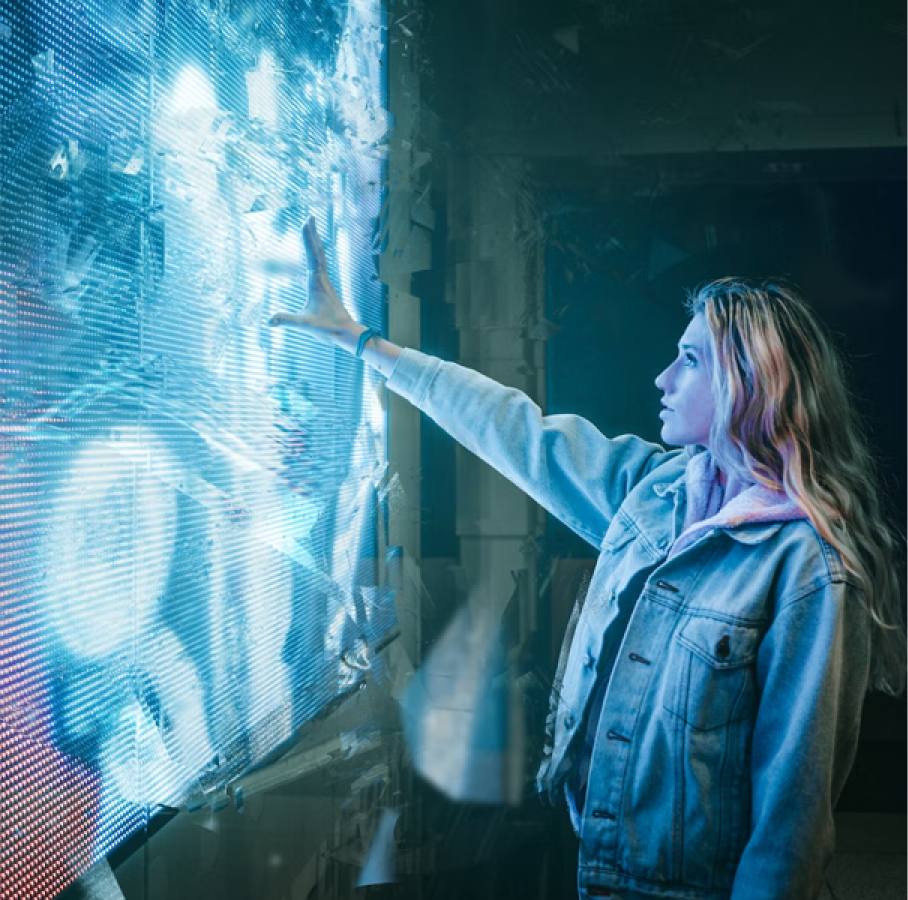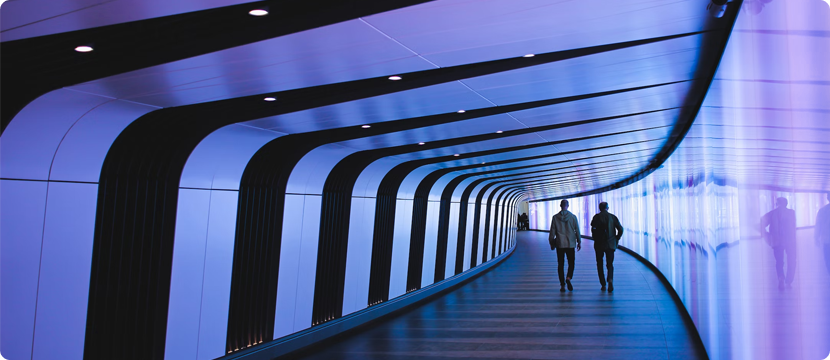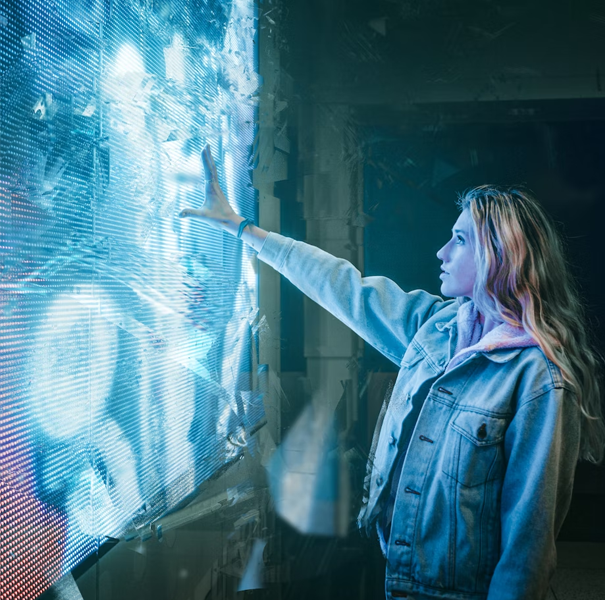

Scientists in Singapore recently invented tiny cyborg bugs1 that can find injured people at a disaster site. This year a UK patient Steve Verze2 made medical history when he was outfitted with a 3D-printed eyeball. Dr3 Professor of Theoretical Physics at the City University of New York and author of “the Future of the Mind” predicts the rise of mental communication and a steady transition from the present-day Internet to a brain net, where thoughts, emotions, feelings, and memories can be transmitted across the planet. From seawater fuel, personalized medicines, and artificially intelligent assistants to robotic bees for cross-pollination, a confluence of advancements in computing technologies and discoveries are making the future look extremely exciting. The world as we know it is only because of the power of imagination and the will of people to look beyond.
The COVID-19 pandemic has changed the world in more ways than one. The most striking of them all has been man’s massive adoption of technology in his day-to-day life. People living in remote places have become comfortable with cashless payments and ordering groceries to medicines from their smartphones. Technology has started to touch lives in the nook and corners of the world.
With the arrival of massive changes, one of the biggest fears of automation has been whether the robots will take away our jobs. Will greater automation replace humans? It’s essentially a misplaced fear. Just like industrialization didn’t demolish the agricultural economy, automation will only aid in transforming lives. According to the World Economic Forum, by 20254, technology will create 133 million new roles in place of the 75 million displaced. Yes, the nature of jobs could change, but man has always adapted to the advent of new technologies that make lives easier.
Automation is already being used to replace repetitive and non-creative tasks. However, as outdated studies are replaced, new ones will be created, birthing new industries. According to the futurist Thomas Frey’s predictions for 2040, most of the typical jobs of the present times might get redefined but will still exist.

Dr James Canton5, CEO of the San Francisco-based Institute for Global Futures and author of “Future Smart: Managing the Game-Changing Trends that will Transform Your World”, foretells how predictive medicine will transform healthcare. Medical devices are being invented that can diagnose diseases with a sniff of our breath, and free DNA sequencing that will predict our health will become common. To complement predictive medicines, personalized genetic drugs will prevent diseases, saving lives and lost productivity.
As technology seeps deeper into human lives, can AI-powered technology behave in ways it was not programmed for? Experts warn that artificial intelligence has inherent risks, as with everything else. Stephen Hawking’s sounded a note of caution when he told the BBC6: “The development of full artificial intelligence could spell the end of the human race.”
He was not being entirely pessimistic when it was found that IBM’s Watson7, when used to assist doctors and physicians diagnose cancer patients, gave numerous “unsafe and incorrect treatment recommendations. Amazon8 had to discard one of its AI-based recruitment programs after it was found that the AI was systematically discriminating against female applicants. These incidents have made a few experts in AI express their fears of creating artificial intelligence that can match or surpass humans.
AI-powered automation has the untapped potential to deliver incredible business productivity while elevating human standards of living. Harnessing this power could change how we work, travel, or live. According to leading visionaries and technologists, letting fear, rather than facts, control the narrative could eschew technological advances only due to fear and inertia.
Loved what you read?
Get practical thought leadership articles on AI and Automation delivered to your inbox


Loved what you read?
Get practical thought leadership articles on AI and Automation delivered to your inbox
If the pandemic has taught us anything, it’s how precious and yet how precarious life is. A microscopic virus in a short period has wiped out more than 5.3 million lives worldwide. Yet without the advancement and support of technology, this number could have been much higher.
While we may not be able to see the paradigm shift in business models, the new emerging technologies are ushering in tomorrow’s new industries. It becomes imperative for today’s businesses to identify these key disruptors, gain insights, and respond to competition to have a sustainable future.
Disclaimer Any opinions, findings, and conclusions or recommendations expressed in this material are those of the author(s) and do not necessarily reflect the views of the respective institutions or funding agencies
- S’pore team turning cockroaches into life-saving cyborg bugs at disaster sites | The Straits Times
- British man given 3D printed eye in world first, hospital says | CNN
- Michio Kaku: Mental communication and infinite knowledge are on the horizon – Big Think
- Machines Will Do More Tasks Than Humans by 2025 but Robot Revolution Will Still Create 58 Million Net New Jobs in Next Five Years > Press releases | World Economic Forum (weforum.org)
- Q&A: Dr. James Canton forecasts the future of medicine (elsevier.com)
- Stephen Hawking warns artificial intelligence could end mankind – BBC News
- IBMs-Watson-recommended-unsafe-and-incorrect-cancer-treatments-STAT.pdf (statnews.com)
- Amazon scraps secret AI recruiting tool that showed bias against women | Reuters






